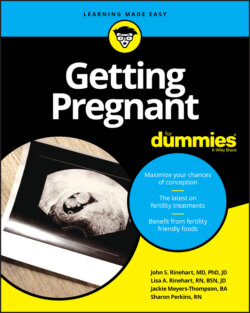Читать книгу Getting Pregnant For Dummies - Sharon Perkins - Страница 20
Finding out important information
ОглавлениеResearching your family history can provide valuable information. For example, you may discover family genetic tendencies that could cause problems on your own reproductive road. Or you may find out that everyone in your family took six months to get pregnant, a fact that may put your mind at ease, particularly around month number five of trying without success.
Before trying to get pregnant, you’ll want to know whether any diseases occur more than once on your family tree. If so, the disease may be caused by a dominant gene that you could pass on if you carry it, even if your partner doesn’t carry it. Some examples of this can be BRCA 1 and 2 (commonly known as the breast cancer gene, but it can affect men as well with increased predilection toward prostate cancer), muscular dystrophy, Huntington’s disease, and more. Depending on how open your family is, finding out this information can be difficult. Many families don’t discuss anything related to pregnancy, especially not problems getting pregnant, pregnancy losses, or genetic defects. Just a few generations ago, parents of children with genetic abnormalities were encouraged to put them in a home and tell the relatives the baby had been stillborn.
If your family tree does hold a genetic problem or a birth defect that shows up more than once, you’ll probably want to have genetic testing done. A gene map, which can be done from a blood test, will show whether you carry abnormal genes that could cause problems for your child.
Sometimes the only thing you find out from family records is nonspecific, such as “all the Smith boys died young.” Try and pin down why they all died young: Did they have hemophilia or muscular dystrophy, or did they all fall out of the same apple tree?
If you and your partner are blood relatives, it is especially important to see a genetic counselor before getting pregnant. You may carry more of the same abnormal genes than unrelated partners would, which may make you more likely to have a child with a genetic problem. The risk for serious birth defects is 1 in 20 for second cousins and 1 in 11 for first cousins.
